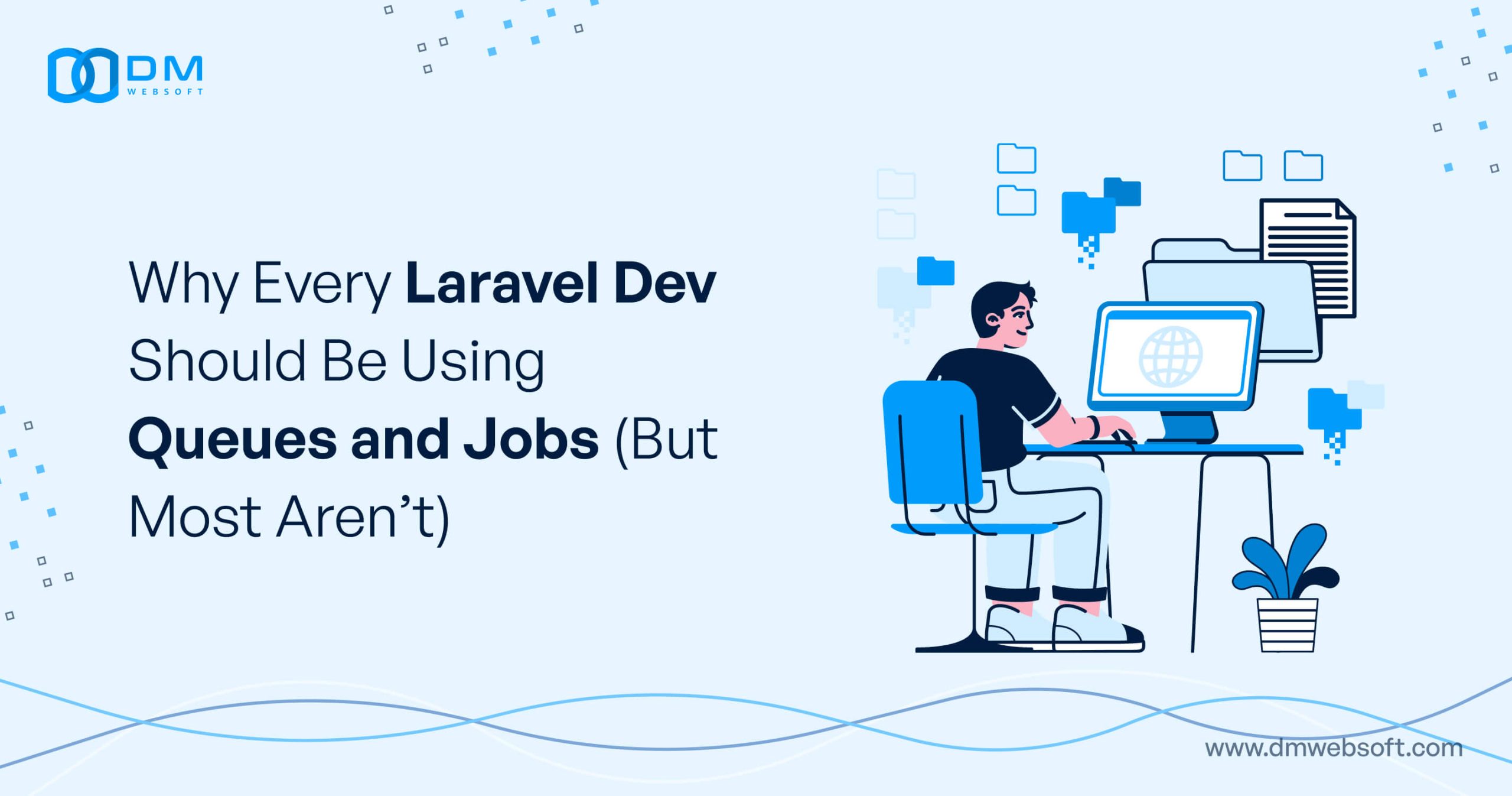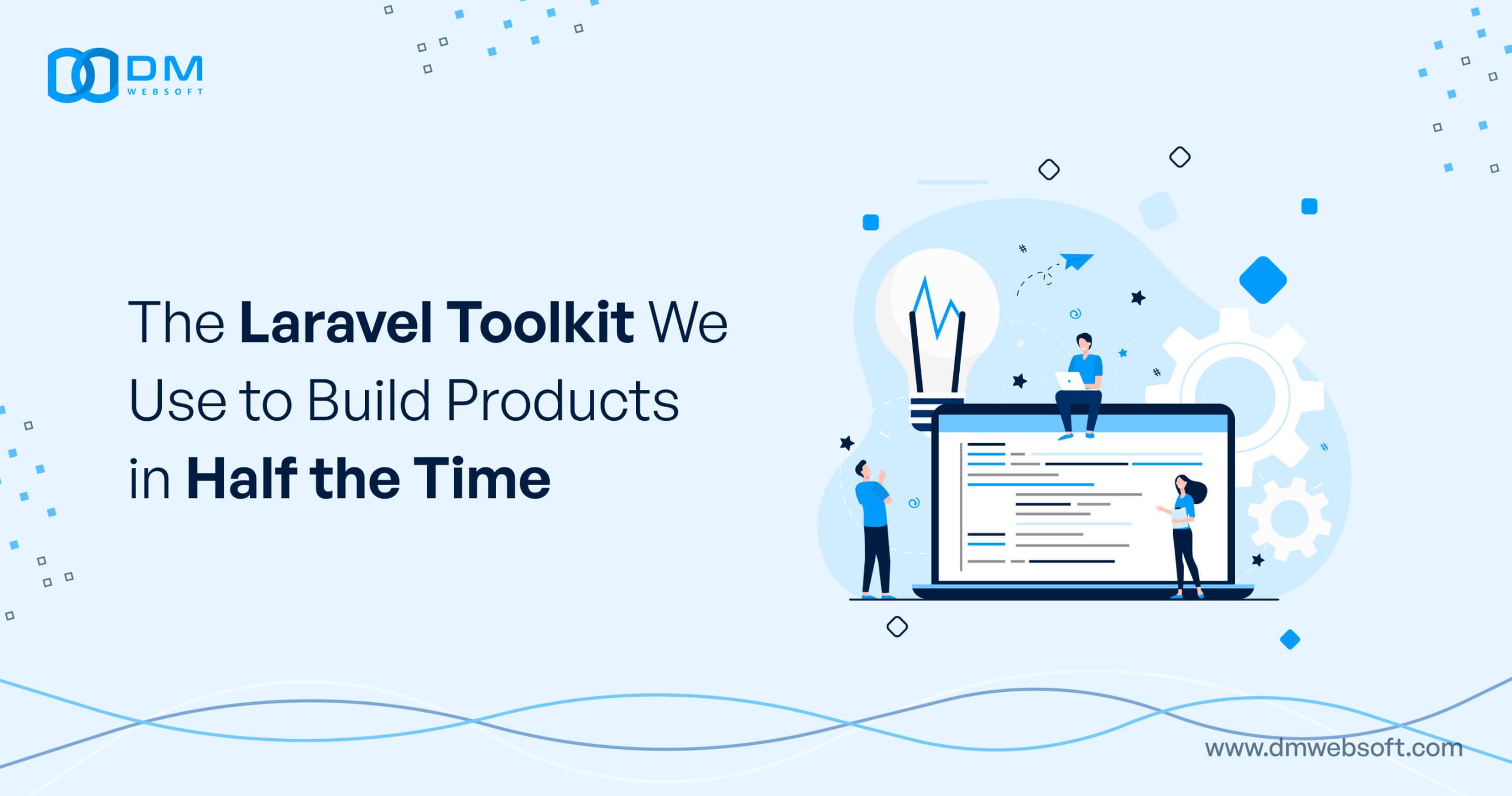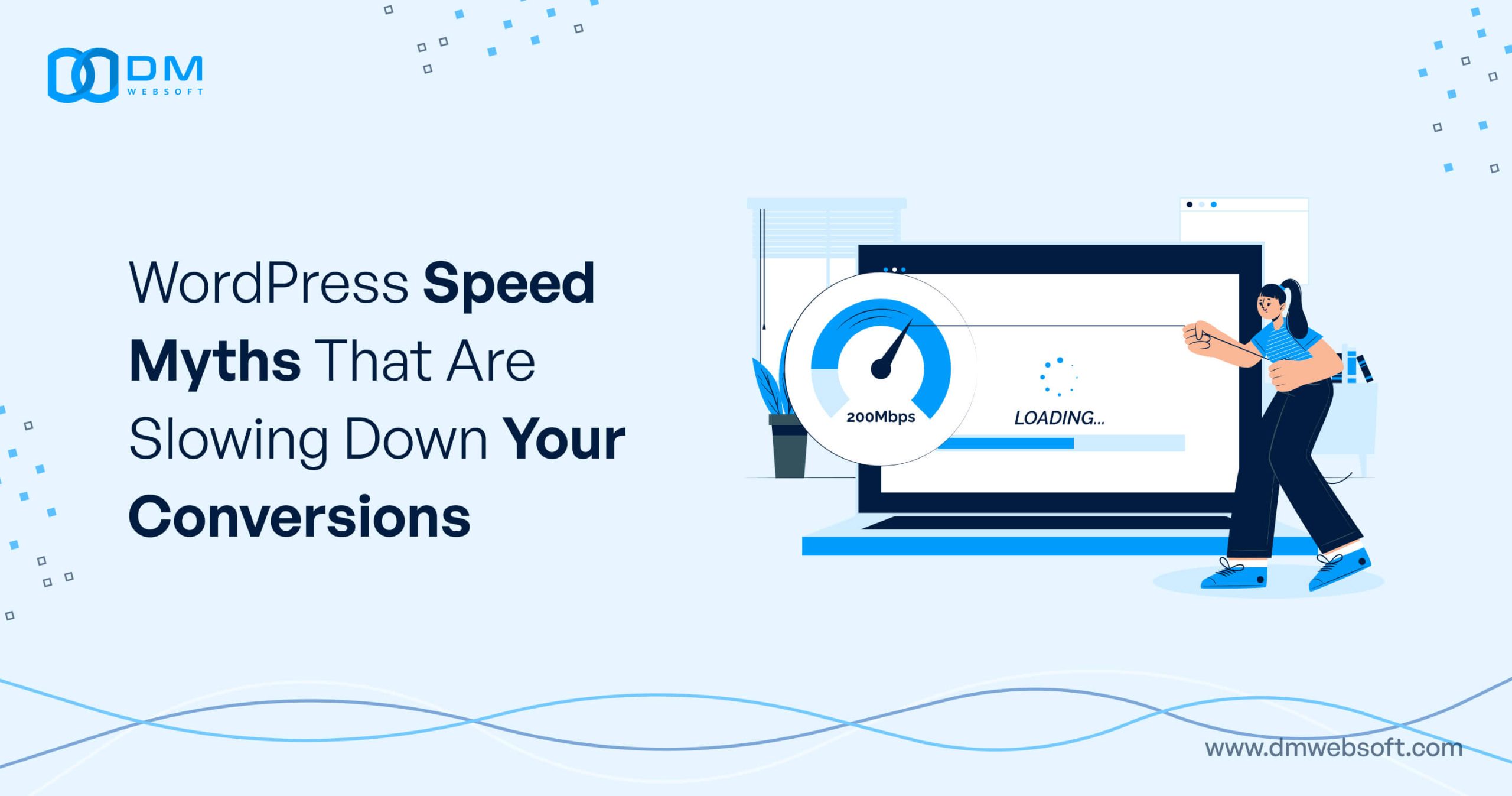DM WebSoft LLP exceeded our expectations! Their seasoned team of experts delivered a website that perfectly captures our brand essence. Their 15+ years of experience truly shine through in their exceptional web development skills.
Comparing CodeIgniter with Other PHP Frameworks: Which One Should You Choose?

TABLE OF CONTENT
Get in Touch
Introduction
The right choice of a PHP framework is key to the overall effectiveness, scalability, and eventual success of an application development project. However, in the arena of PHP frameworks, a lot of options can be confusing and leave you perplexed about which one perfectly suits your needs. We will detail comparisons of CodeIgniter with some leading PHP frameworks: Laravel, Symfony, Yii, and Phalcon. At the end of this article, you should be able to know the strong and weak points of each so you are positioned to choose a framework wisely. PHP frameworks have become an integral part of modern web development.
It provides pre-built libraries and modules that help to drastically simplify the development process. These frameworks come with a number of features like the MVC architecture, database abstraction, security implementation, and more, so that a developer can pay full attention to write clean and maintainable code. This article will help the users to opt for the best PHP frameworks in order to start and execute their project quickly, with amazing performance and easy maintenance. One of the most popular PHP frameworks is CodeIgniter, known for its simplicity and fast functioning.
It is particularly liked by those developers who need a light framework that is effective and has less complexity. In this article, we do a detailed comparison of how it stacks up against other PHP frameworks in important features such as performance, scalability, ease of use, and community support. This choice is not solely based on technical specifications but also pertains to the choice of the best partner that will be in a position to implement and get the best out of it.
We at DM WebSoft LLP are a PHP framework development specialist and offer expert consultation and development services, tailor-made to the specific needs of our clients. Our experienced developers can help you walk through the intricacies of web development, either you are a startup looking for a fast and expeditious solution or an enterprise aiming at a scalable and robust framework.
Overview of PHP Frameworks
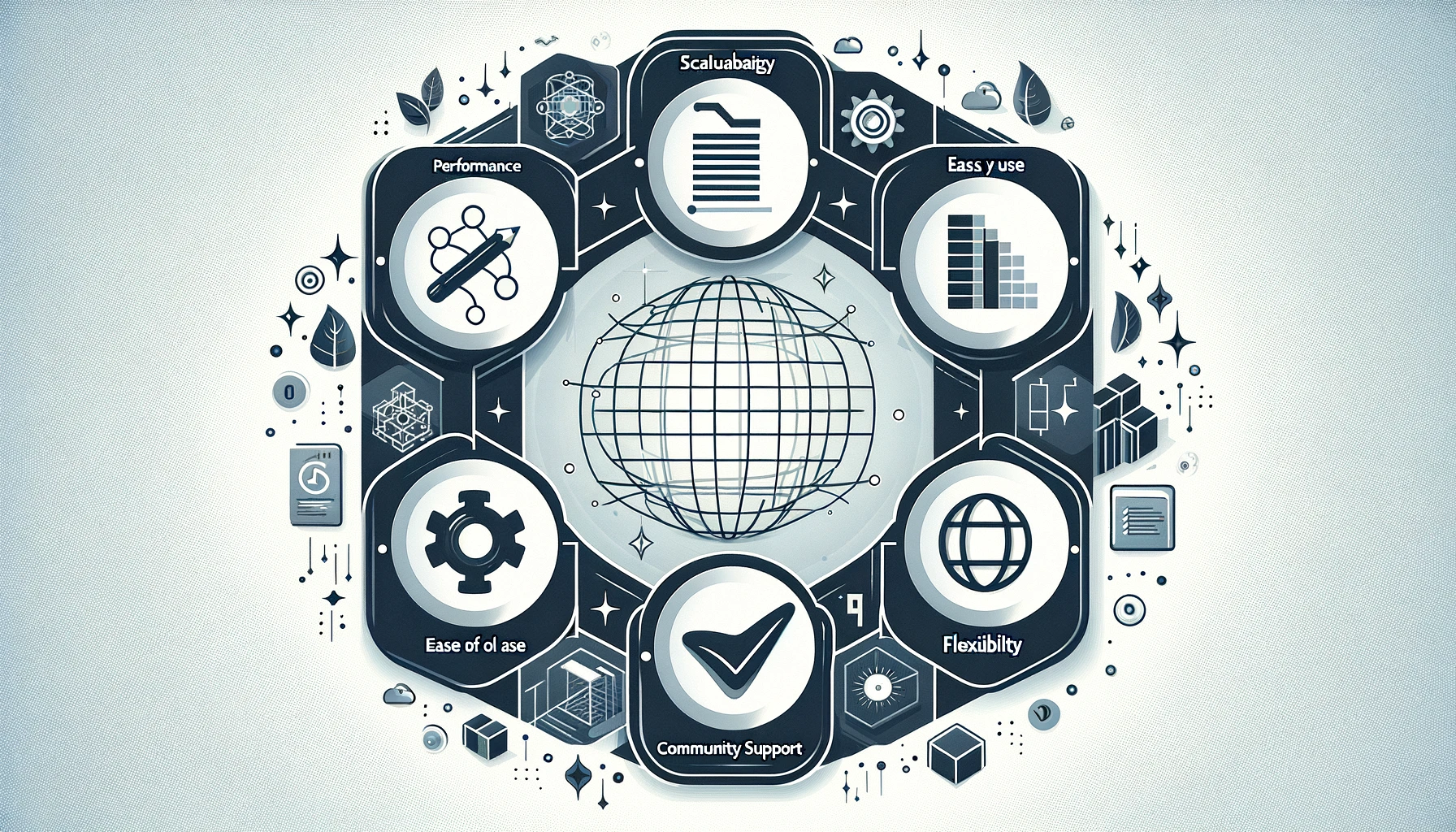
PHP frameworks are powerful tools in the technology space. They offer an organized support system that enables developers to develop quickly and with their best efforts identifiable in crafting a durable and powerful application.
But what exactly are PHP frameworks, and why are they so crucial for modern web development? The PHP framework is a platform for developing web applications using PHP. It gives you a basic structure which helps in building web applications. Since these frameworks come along with the libraries, modules and another tool that is pre-built implement the develope can build applications in less time and with minimum errors.
So, the key advantages that come up from the use of PHP frameworks are reusability, scalability, and maintainability of the code. One of the major reasons why the need of PHP frameworks is felt quite important is adherence to the concept of MVC. V stands for View, M for the Model, and C for the Controller. This gives clear separation of logic and presentation and the code is fast and better methodologically arranged and maintained. It leads to a great advantage in the form of modularity and flexibility to allow changes in one layer not to be applied to all other layers.
CodeIgniter, Laravel, Symfony, Yii, and Phalcon are all frameworks built around this architecture, providing a robust foundation for scalable and maintainable applications. CodeIgniter is known to be a simple and fast small framework. It is a lightweight framework that is easy to handle and does not have a lot of components, making it good for a beginner and for a project that is required to be done fast. Whereas, on the other side, frameworks like Laravel and Symfony are good for the big developers due to their features tilted that way for the complex and large scale based applications.
The other major advantage that PHP frameworks have with regards to security. Security in today’s digital world is a top priority. Putting security features in PHP frameworks out of the box ensures that applications are protected and safe from common attacks such as SQL injection, cross-site scripting (XSS), and cross-site request forgery (CSRF). These built-in securities stand as an infallible defense to the application against potential vulnerabilities, making the base of the application secure. Further, PHP frameworks ease the scalability of collaboration among development teams. With a well-defined structure and coding standards, PHP frameworks permit numerous developers to prove their worth on the same project without causing interference with each other’s work.
This is an important collaborative benefit for big projects with several developers coming into play. At DM WebSoft LLP, we understand that the right PHP framework migration is the key to a successful project.
Our experts are proficient with a wide number of PHP frameworks, and so, we can always offer the best solution suitable to your needs. Whether it is a small business that needs a quick and effective development process or a big enterprise needing a scalable, robust, and prepared application, we are prepared to lead you to success.
CodeIgniter Overview
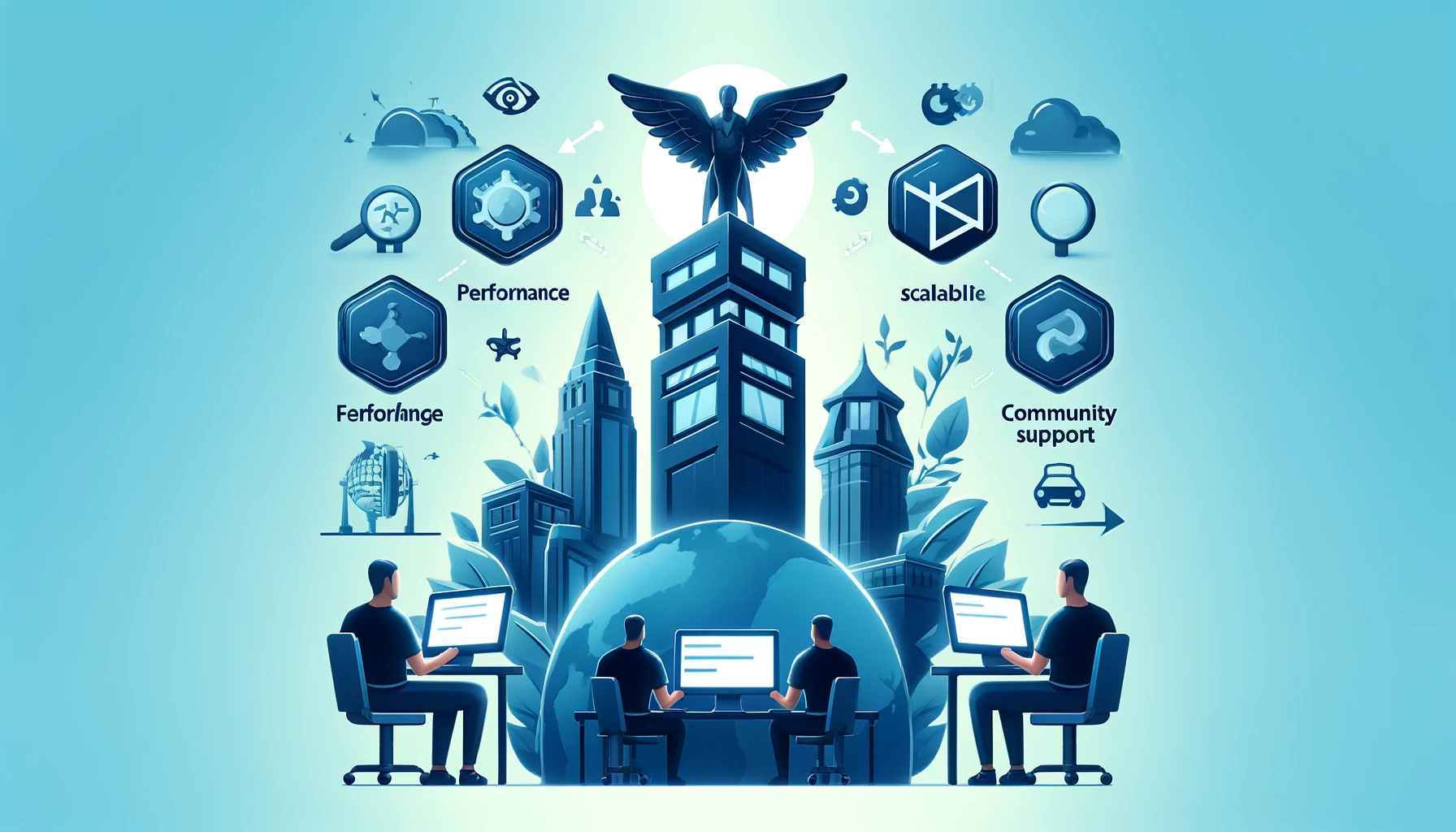
CodeIgniter is a powerful PHP framework that has captivated the hearts of many developers because of its simplicity, speed, and ease of use. CodeIgniter was developed by EllisLab, is currently maintained by the British Columbia Institute of Technology, and is regularly appreciated for the basic methodology toward web development. It is extremely lightweight when compared to other software frameworks available in the market.
CodeIgniter has a very light and lean footprint, and on the other hand, is entirely server-resource-friendly, therefore very much favorable among developers and good to develop light web applications with a great performance, especially when the project has a tight deadline or a shortage of resources available. CodeIgniter is quite in line with an application in terms of Model-View-Controller, hence leads to an organized code and separation of the business logic from the presentation.
This separation makes the code neat, easily manageable, and, on the other hand, augments the scalability of the application. Augmenting the scalability simply means that the developer can easily update or expand one part of the application without affecting other things, which is very critical for web applications that need to be maintained and scaled over time. Another feature of CodeIgniter is extensive documentation.
Documentation is one of the two main pain points of developers in using a framework, as the issue of comprehensive and clear documentation is majorly one. Quite contrarily, however, CodeIgniter revolves in resolving this issue and, therefore, provides very detailed, easy-to-follow guides of how to go about different tasks.
This is a strong point combined with an active community, which ensures that if help is not provided from the official channel, then the community does offer it on the forums. In a final analysis, another area where CodeIgniter particularly shines in is security. It comes with built-in security tools to protect your web application from common threats such as SQL injection, cross-site scripting (XSS), and cross-site request forgery (CSRF). Because any web application without these security features is incomplete, the integrity of your data will always be questioned when attacks arise against your users.
CodeIgniter is also very flexible and, by all means available, it will not bind the best practices and coding rules to developers by imposing strict coding rules. This is another reason why senior developers like working in it. At the same time, the framework should not be a hindrance to the flow, but be under full control of the developer.
Another thing is that CodeIgniter works on active record pattern in its interaction with the database, so it becomes easier to build dynamic and database-driven applications.
In DM WebSoft LLP, we have wide experience working in CodeIgniter. Our expert team has developed a host of projects using this framework and accomplished the given task through this speedy and simple way to produce exemplary web applications. Our team will guide and consult you if you are from a startup organization and looking for a fast and effective solution or, if you are a big enterprise and you do need a very strong and scalable application, our team will help you materialize the ideas using CodeIgniter.
We hope to provide you with an informed notion on which framework may be appropriate for your project based on things such as their performance, scalability, ease of use, and available community support.
Consideration Criteria
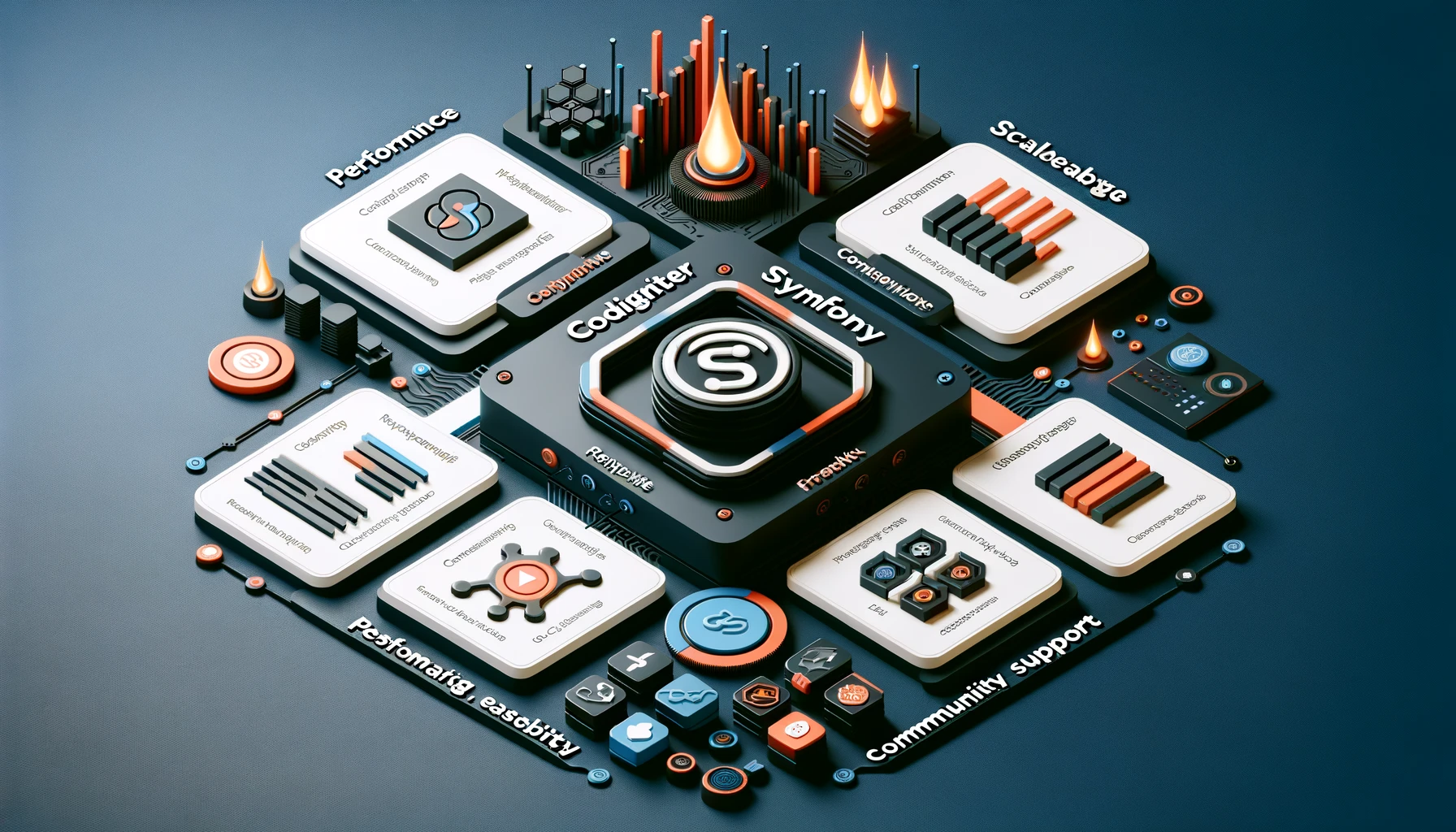
As you would concur, developing a PHP web application would not be devoid of consideration of CodeIgniter against a set of considerations. This would be essential to make sure that the framework you have at hand aligns with what your project needs and, most important, the project goals. Hereafter, we are going to outline some of the key considerations that we will use in the comparison of CodeIgniter with some leading PHP frameworks including Laravel, Symphony, Yii, and Phalcon.
Performance
Performance is a key determinant in the success of every web application. It determines everything from load times to user experience and, at times, even SEO rankings. CodeIgniter is a lightweight and fast framework, and this is one of the reasons it keeps turning the heads of those looking for applications with very fast response times. When comparing CodeIgniter with frameworks like Laravel and Symfony, it is important to consider its resource handling, requests, and optimization of performance for each framework.
Scalability
Scalability is the capability of a framework to handle growth, which can be in the form of either more user traffic, an increasing volume of data, or complexity of the application. A scalable framework would, therefore, enable an application to scale up without much change in the codebase. CodeIgniter is very scalable because of the modular design that it has. It can allow developers to add more features and functionalities when the need arises. In contrast, Laravel and Symfony also offer robust scalability, though they are going to require more base bootstrapping and configuration.
Usability
Usability is more specially important for a developer who is new to a certain framework or who needs to get a project off the ground quickly. CodeIgniter does not disappoint in this regard. It is set up easily and quickly usable. The framework is user-friendly and requires minimal configuration straight from the box. Yii and Phalcon are designed with this salient simplicity, hence ease of use; Laravel and Symfony are engineered to be more expansive and come with a lot more features, thus bringing about a learning curve.
Community and Support
A strong community and good support is all you’d ever need with a PHP framework. A good community means that resources such as tutorials, forums, and third-party plugins, among others, are available. CodeIgniter has an immense support in its community and is bundled with detailed documentation, hence pretty convenient when it comes to getting solutions and sharing insight with others.
With Laravel and Symfony, having huge and very active communities, the support system here is pretty dependable with adequate resources. The rest will have relatively small but strong communities contributing to their development majorly. A developer would tune it to their needs due to the flexibility of a framework.
CodeIgniter is very flexible, not tying a developer to strict coding rules but making one free to work in their own way. This can be very beneficial for experienced developers who have set workflows and preferences. Though Laravel and Symfony are flexible, they have more predefined structure or conventions, which usually allow smooth development. However, these can often feel prohibitive to just about any developer out there.
We understand that the right PHP framework is invaluable for concerns ranging from performance to scalability, ease of use to community support, and flexibility. Our seasoned developers have great expertise on various frameworks, therefore making sure that we give the solutions your project needs.
Whether you put your concern from performance to scalability, ease of use to community support, or flexibility, we’ve got the expertise to lead you in the right direction.
The following sections perform a comparison of the criteria of the leading PHP frameworks matched with CodeIgniter: Laravel, Symfony, Yii, and Phalcon. A more detailed comparison will settle the strengths and weaknesses of each framework, thus helping you make an informed choice.
When it comes to making a choice between two of PHP's favorite frameworks

This should be one of your primary considerations: performance, scalability, flexibility, ease of use, and support from the community. There are unique characteristics for both frameworks that are good for various different types of projects. And finally, we will also give a great comparison between both of them in order to help you decide which one is going to suit your needs the most.
Performance
One of the key issues for everyone is the performance of any web application. CodeIgniter is tagged as a lightweight PHP framework, which means it has the small footprint and low system needs. This means that the framework avoids burdening your application with over-bloated features that may cause slow load times and hence improves app performance. On the other hand, Laravel is a much more featured framework and sometimes tends to be a bit slower because of the overhead caused by those extra features. Still, Laravel makes up for that capability with caching, session management, and database queries, which will improve the request time when properly optimized.
Scalability
Regarding scalability, this is another important issue if the application is supposed to provide its services over time. CodeIgniter is designed perfectly scalable to higher modules and functionalities, so since it is made quite modularly, it can be scalable with no big changes in the codebase. In a similar way, Laravel provides the same through robust architecture. Some of the things that have been introduced in Laravel are queues and job handling. These are very good for large-scale applications that need to process many tasks at the same time. Both frameworks are scalable, but Laravel offers more built-in tools that facilitate the process.
Ease of Use
Developers, after all, need to get things done quickly. CodeIgniter’s simplicity and minimal configuration are lauded ad infinitum. A developer can get working on it in almost no time without getting tangled up in its throes of complex setup processes. While Laravel has a much more extended feature set, the learning curve is directly proportional, and this increases due to the massive set of functionalities and complex setup. However, good documentation and community support make it even easier to explore and get mastery over it.
Community and Support
Community can be a massive advantage in sticking with any framework. CodeIgniter boasts a dedicated and active community of developers who contribute to its documentation and offer support on forums and other online mediums. In fact, Laravel is the one with the widest and most active communities in the PHP ecosystem. This translates into a vibrantly active community from which developers have access to a great number of tutorials, packages, and third-party tools, which can be extremely useful for both beginners and professional developers. Strong community support ensures that readily available help is present for any problems that might be encountered.
Flexibility
Developers can mold the framework according to their needs. CodeIgniter is high in flexibility due to its loosely coupled components, and it’s easy to pick and integrate only those features which would be desirable for the developers. This makes it a good platform for projects that require a more hands-on approach. Laravel is as flexible but has structures that are more opinionated. Conventions are in place to make development faster, which sometimes feels too restrictive for developers. However, the conventions in Laravel are designed in a way that will make one more productive and maintainable in the long run.
At DM WebSoft LLP, we understand the importance of choosing a framework for any project. A great deal would be done to help you realize your actual needs and choose a framework that would be most compatible with your intentions.
Be it simplicity and speed of development using CodeIgniter, or be it the rich feature set and scalability of Laravel, we have the experience to deliver a solution according to your expectations. The next section will compare CodeIgniter with another leading PHP framework, Symfony, for further insights in choosing the right framework for your project.
CodeIgniter vs Yii After comparing
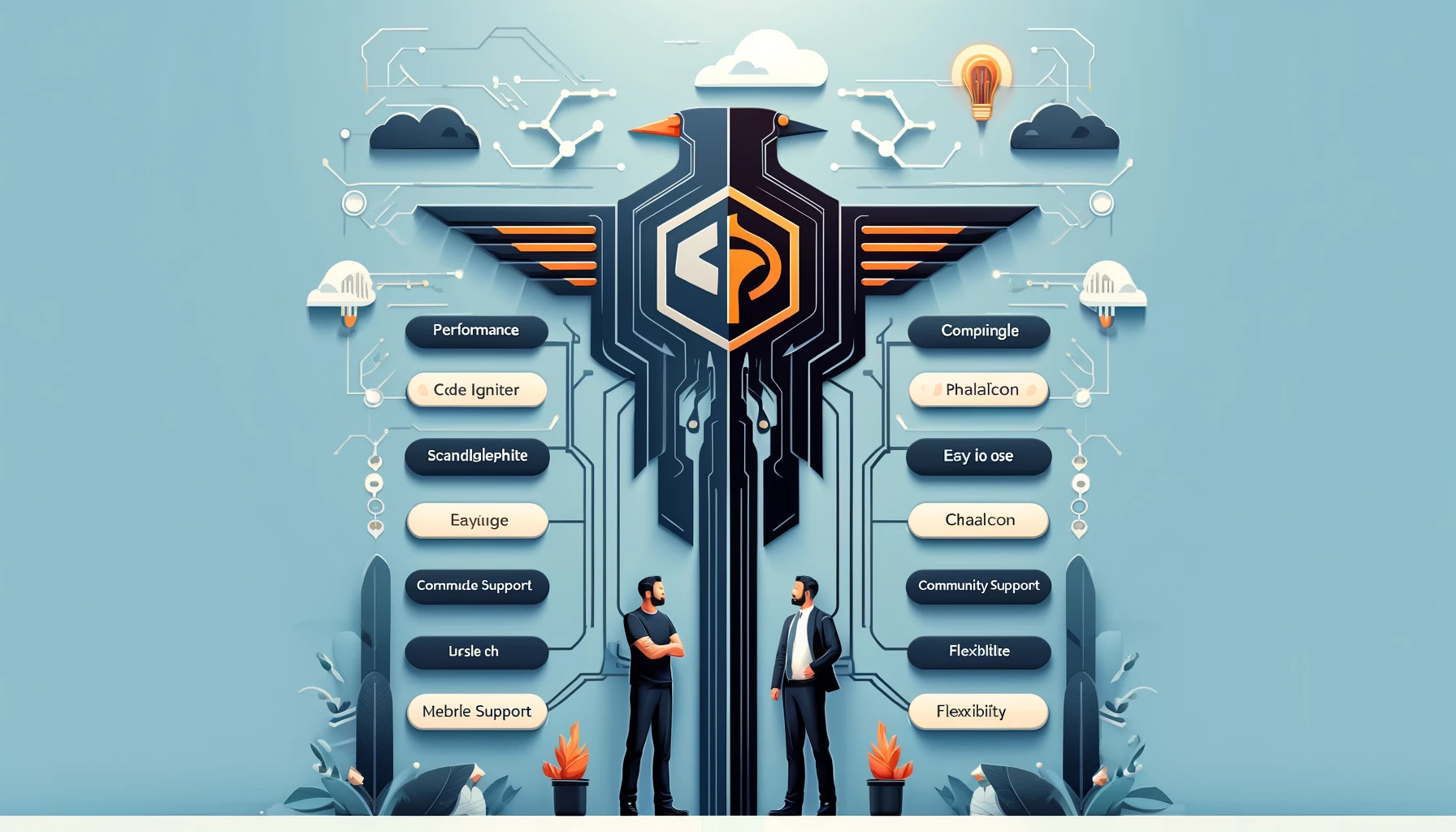
CodeIgniter with Yii, another widely selected framework, it is very important to check their strong points as well as the weak points in coming to the decision of which one is the best one for your project.
That is the reason each of these frameworks has some important unique features and benefits, which are able to satisfy the most various requirements of different kinds of web development needs. In this part, let’s compare CodeIgniter and Yii with the following characteristics: performance, scalability, ease of use, community, and flexibility.
Performance
Implementing any web-based application requires careful attention to performance. CodeIgniter is known for its lightweight and blazing speed. It is developed in a way that is minimal in terms of overhead. In this way, it loads fast and executes with speed. This makes CodeIgniter a perfect choice for projects where performance is key. On the other hand, Yii is built with performance in mind.
Yii utilizes lazy loading extensively. It greatly improves the performance of web applications by delaying component loading up to the point at which they are actually needed. Furthermore, Yii has efficient data caching mechanisms that enhance performance, making it a favorite in this category.
Scalability
This is the aspect that applications should possess when it is known that they will grow over time. CodeIgniter is a modular framework, which allows developers to scale their applications up with simple addition of a new module or features. This flexibility allows the application to scale up without great changes to the existing codebase.
At the same time, Yii does not fall short on this end. The component-based architecture of Yii puts this framework in the list of highly scalable application frameworks which are also maintainable. With tools like Gii, Yii’s powerful code-generation tool, which allows developers to create and customize a module in the shortest possible time, Yii is best suited for creating large-scale enterprise applications.
Ease of Use
Ease of use is very valuable to the kind of developers who need to get a project running in no time. CodeIgniter, in more than one way, gets appreciated for its simplicity and ease of use. Its easy setup and low requirements for configuration mean that developers can get coding their projects in almost no time.
CodeIgniter is a great choice for professionals who favor a quick, hassle-free development process. Yii, on the other hand, presents a richer feature set, but, on the other side of the coin, has a steep learning curve because of its comprehensive functionalities and advanced features. Still, Yii eases this curve with detailed documentation and help from a supportive community, lowering the barrier for developers to master this framework over time.
Community and Support
A good community with sound support is a treasure chest for a framework. CodeIgniter has a very active, dedicated community that participates in documentation and offers help through forums and other Internet sources. This ensures that the developer does not find it hard to get support and exchange his/her brainchild. Yii also has a very active community where an extensive range of tutorials and a multitude of extensions and third-party tools give developers a lot of resources for exploitation. Yii is actively contributed to by its community, ensuring sound support as well as constantly improving the framework.
Flexibility
Having flexibility means the developer can make the framework fit his/her needs. With its loosely coupled components, CodeIgniter offers a high magnitude of flexibility. This way, developers can easily choose the features they want and integrate without unnecessary extras beginning to appear.
In essence, it is a really good choice for developers who want to avoid bloat for their custom solutions. Yii is component-based because it is very flexible. It allows developers to apply their unique needs in building their highly customizable applications. However, sometimes Yii’s advanced functionalities and predefined structures are not that flexible for some developers who like flexibility in a very flexible way of coding.
We, at DM WebSoft LLP, understand that the choice between CodeIgniter and Yii largely depends on the specific requirements of your project. Our experienced developers can help you in assessing your needs and deciding on the framework that would serve the purposes you have for your projects. Whether you desire simplicity and speed in CodeIgniter or crave the advanced features and scalability of Yii, we have the experience that will make your expectations come true. We now move on to the following section, comparing CodeIgniter with Phalcon, another powerful PHP framework, to get a little more insight into how to pick the right tool for your project.
Conclusion
This is a decision that is very important to make, for the wrong choice of the PHP framework will impact the success and productivity of the application. In this comprehensive comparison, we have considered the strengths and weaknesses of CodeIgniter in most influential PHP frameworks in use today: Laravel, Symfony, Yii, and Phalcon. Each one of these has its unique strengths, which make it appropriate for different kinds of projects and development needs.
Standing out characteristics of CodeIgniter are that it is simple, it offers fast development, and easy to use. It’s a good option for fast development of challenging and complex applications that must remain robust. With its lightweight nature and minimalistic design, it allows the applications to run without hitches and hang-ups. Design-wise, CodeIgniter fits small- and medium-scale projects with primary requirements–quick development and ease of maintenance.
On the other hand, Laravel is so feature-rich and gives much of the functionality that the developers require that it is considered one of the very good options over complex and large scale projects. And that’s primarily because of its strong architecture and other tools for the system caching and session management and database handling, providing a single system for an enterprise project. The best thing about Laravel is also the strong community and a big ecosystem of packages and extensions that make it even more appealing.
Symfony is very scalable and flexible out of the box, since it is a component-based architecture; hence, developers are able to create highly customizable and scalable applications. It is features advanced, supported by a great community that makes for a good ride for the large-scale enterprise project. The only downside is that it has a steep learning curve and might need a lot of time from developers.
Yii strikes the right balance between performance and scalability through efficient data-caching mechanisms and a component-based architecture. It fits in well with applications that require high performance and maintainability. Yii: Yii has Gii, a great tool of code generation, so it is considered for any huge project because it can generate the code; among other things,
Phalcon: This is unique in that it is unbeatable in performance, both in speed and resources usage, because of C-extension implementation. It has a low architecture, which allows it to drive out execution times much faster, so it is a good option for high-performance applications that lack features. Phalcon is considered a ramshackle, hence for effective usage, it is needed to dive deep into the working of PHP and C.
While with DM WebSoft LLP, it realizes that the decision to choose any PHP framework is completely based on the individual requirements and goals of your project. Over here, our group of developers is highly endowed with an enormous number of different PHP frameworks in order to make sure that to be able to render solutions best to your specification. Whether it be the simplicity of CodeIgniter, the swiftness of CodeIgniter, feature richness of Laravel, scalability of Symfony, performance optimization of Yii, or efficiency of Phalcon, we have the expertise to guide you and implement the framework which is apt for your project.
The proper PHP framework will make a world of difference when it comes to achieving the success that transpires in your web development project.
So make sure to come up with a well-thought-out decision in this regard, with performance, scalability, ease of use, support from the community, and flexibility as being a big thing upgraded and brought about. Come to DM WebSoft LLP to have professional consultancy and development services; secure your application on a solid foundation using the properly chosen PHP framework.
CodeIgniter is known for its simplicity, speed, and ease of use. It offers a lightweight framework with minimal configuration, an MVC architecture, comprehensive documentation, and built-in security features. It is ideal for projects that require quick development and efficient performance.
Both Laravel and CodeIgniter offer scalable solutions, but Laravel provides more built-in tools for handling large-scale applications. Laravel includes features like queues, job handling, and extensive support for large data sets, making it well-suited for enterprise-level projects. CodeIgniter, with its modular design, also supports scalability but is often chosen for smaller to medium-sized projects due to its simplicity.
Phalcon is widely recognized for its high performance due to its implementation as a C extension, which allows it to operate at a lower level and interact directly with the PHP engine. This results in faster execution times and reduced resource consumption, making Phalcon an excellent choice for high-performance applications.
Yes, CodeIgniter is highly suitable for beginners due to its simple setup, minimal configuration requirements, and comprehensive documentation. Its straightforward approach allows new developers to get started quickly and build efficient applications without a steep learning curve.
Symfony excels in large-scale enterprise projects due to its component-based architecture, which allows for highly customizable and scalable applications. Its advanced features, strong community support, and extensive documentation provide a robust framework for managing complex and large-scale projects. Symfony’s flexibility and scalability make it a preferred choice for enterprises.
Get Started Now !
What’s the Process ?
Request a Call
Consultation Meeting
Crafting a Tailored Proposal
Get Started Now !
Real Stories, Real Results. Discover What Our Clients Say

Working with DM WebSoft LLP was a game-changer for our business. Their technical prowess and innovative solutions transformed our online presence. A highly recommended web development agency with a stellar track record.

We are thrilled with the results DM WebSoft LLP delivered. Their deep understanding of web development coupled with years of expertise ensured a seamless and visually stunning website. True professionals!

In a digital age where first impressions matter, DM WebSoft LLP crafted a website that speaks volumes. The team’s attention to detail and commitment to quality set them apart. Thank you for making our vision a reality.

DM WebSoft LLP’s team demonstrated unparalleled expertise. Their ability to navigate complex technical challenges with ease is truly commendable. Choosing them for our web development needs was the best decision.

Exceptional service, unmatched skills! DM WebSoft LLP stands out as a leading web development agency. Their collaborative approach and commitment to excellence make them our go-to partner for all things web-related.

DM WebSoft LLP turned our ideas into a digital masterpiece. The seamless communication and timely delivery of our project showcased their professionalism. Highly impressed with the level of creativity and skill.

Our experience with DM WebSoft LLP was nothing short of amazing. From concept to execution, their team provided top-notch web development services. A reliable partner for businesses looking to elevate their online presence.

DM WebSoft LLP’s team of tech experts is second to none. Their wealth of experience reflects in the quality of their work. Our website not only meets but exceeds industry standards, thanks to their dedication.

Choosing DM WebSoft LLP was the best investment for our web development needs. Their team’s proficiency, coupled with a customer-centric approach, made the entire process smooth and enjoyable. A pleasure to work with!



